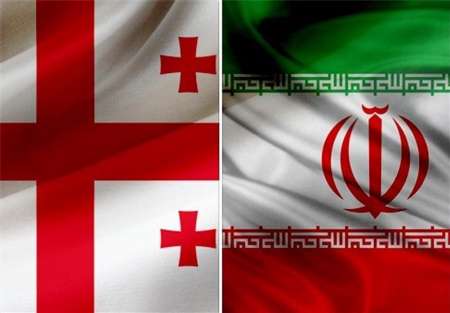
Once Salman Khurshid, the Minister of External Affairs of the Republic of India said, “In international relations, in foreign policy, a great deal has to do with historical circumstances, a great deal has to do with the sense and perception of people.”
This utterance is totally true. In relations between countries, we can see numerous examples that even two rival countries changed to economic and political partners, solely because of mutual trust between their nations. The special relation between France and Germany is among them.
There are also many cases in which, in spite of structural, geographical and geopolitical differences, historical relations between the two nations keep them allies, a prime example of which is the relationship between the US and the UK.
The relations between Iran and most countries of Caucasia and central Asia enjoy the advantage of both historical backing and mutual trust and friendship between the nations.
The Iranian Minister of Foreign Affairs was in Georgia the previous week and the Georgian Prime Minster Giorgi Kvirikashvili arrived in Tehran on Saturday to sign some economic and political agreements with Iran.
In addition to being an economic and tourism partner to Iran, Georgia is one of the potential gateways to Europe, meaning it can put an end to the monopoly of transit routes between Iran and Europe.
With the opening of ‘Iran-Armenia-Georgia’ and ‘Iran-Azerbaijan-Georgia’ transit routs, Georgian ports on the Black Sea coast will flourish as bottlenecks for transiting commodities. What is more, the same two routes will reach the Persian Gulf and the Oman Sea after the completion of the transport infrastructures in Iran.
On the other hand, Georgia provides almost its entire natural gas from the Republic of Azerbaijan, and also Russia gives a small amount of natural gas to Georgia as transit fee to Tbilisi. The Natural Gas for Transit Contract expires this year and Moscow will pay money as ‘Transit fee to Armenia’, and Iran can be considered a heavy weight in the market for exporting natural gas to Georgia.
Apart from cooperating for transiting commodities and providing energy, Iran and Georgia are negotiating on cooperation in agriculture, banking and financial industries, infrastructures, and exchanging science and technology.
With regard to historical trust between the two countries, all these capacities enjoy a high chance of fructifying.
**Trust backgrounds in the Contemporary History
Iran was on of the first countries to recognize Georgia’s independence from the USSR; and just less than five months later the diplomatic relations between the two countries kicked off.
In 2006, after the Russian gas pipeline seizure, Iran provided the natural gas the Georgians needed. Georgian politicians will always remember this friendly gesture.
In 2008, during the Russian military invasion of Georgia, Iran, despite close relations with Russia, avoided siding with Russia and officially announced that it supported countries’ territorial integrity and called for respecting the international norms and laws.
After the JCPOA, traveling to Iran, without a visa revived again that can help the two nations’ close relations. Just in 2016, 147 thousand Iranians visited Georgia that is six times more than the previous year.
** Cultural Backing
The first things of Georgia that are left in the historical memories of Iranians are some family names, such as Gorji, Mikilani and Lachinani that show an old relationship between the two nations.
And it is interesting to know that there are many Georgian names originating in Iran. These names came into use after the translation of Shahnameh into Georgian in the 12th century. Georgians fell in love with the book and started to use the names of its characters. Rostom, Goderzi and Ketevan (respectively, Rostam, Goodarz, and Katayoon in Farsi) are a few examples.
In December 2016, when Dr. Alexander Chulukhadze from Orientology Department of Georgia University in his speech on ‘Iran-Georgia Relations during the Achaemenian Empire based on Archeological Foundlings’ said, “ Georgia had been a part of Iran”, maybe the most interesting reaction was from Georgia ambassador to TehranIoseb Chakhvashvili
Talking to the audience, he said, “I was always unhappy with why Greek historians have not named Georgia as one of Iranian satraps; today I understood that the reason was ‘Georgia was a part of Iran' and it makes me happy.'
The amount of historical and cultural background between the two countries naturally paves the way for developing political and economic relations.
The Georgian Prime Minister’s trip to Iran is a good chance for Tehran and Tbilisi to take steps on this way.
Author: Zaman Reza-Khani
Translator: Hossein Abolghasemi
Editor: Javad Baghaeenejad
9417**1771
www.irna.ir
 solhkhabar | Peace International News Agency Peace International News Agency , Peace News , International Agency News of Peace
solhkhabar | Peace International News Agency Peace International News Agency , Peace News , International Agency News of Peace